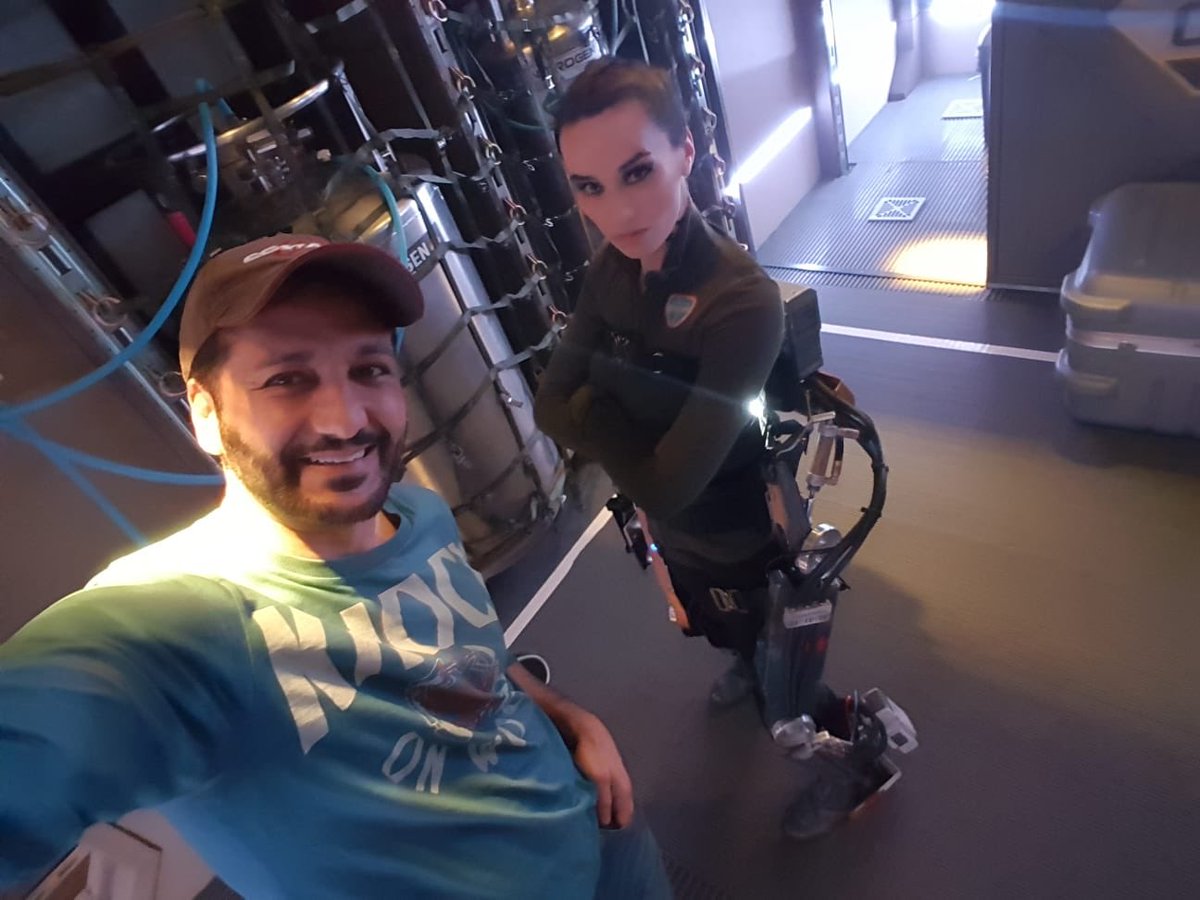Staircases in Space: Why Are Places in Science Fiction Not Wheelchair-Accessible?
Ho. Lee. She. It.
The author spends the entire article complaining that the Enterprise and the Millenium Falcon aren’t wheelchair accessible. You know, the Enterprise set in the universe where transporters can simply beam infectious diseases out of you. The Falcon from the universe where you can get a limb hacked off and get a fully functional robot replacement in an *hour.* Or even three limbs. The author, after noting that Star Trek is set in a future that is utopian, actually writes this:
Contrary to ableist opinion, a utopia is not a world where disability is a problem that’s been solved; rather, it’s an inevitable expression of genetic variance, and disabled humans are not just welcomed but fully included.
In *any* sort of substantially more advanced future, disabled humans would be accepted by being made ABLED.
Why don’t we see people trundling around the Enterprise in a wheelchair? Because Bones fixed their little problem, and now they’re strolling the hallways, not taking up space and being inefficient. heck look at Geordi Laforge: born blind, they didn’t rebuild the world to make it easier for him to navigate it as a blind man… they gave him new friggen eyes and now he can see better’n anybody.
I have been writing my own science fiction. I’ve been writing a *lot,* perhaps (from an rational economic standpoint) too much. In any event, most of my writing takes place in a world hundreds of years down the line. It’s by no means a utopia, but the technology is in may ways inconceivably advanced… to the point where there are a whole lot of present-day identitarians would be appalled to discovered that they simply wouldn’t exist there. You won’t find anyone with Downs Syndrome. People without limbs due to genetic flaws have their genes brought back up to code, generally before birth. People who lose limbs are given options… robolimbs, printed biolimbs which are simply plugged in, or regrowing limbs in-situ (each has advantages and disadvantages). The blind can see, the deaf can hear, the disabled made abled.
Some people in the present world are in wheelchairs because of problems they’ve had from birth. The author of the piece, for instance, seems to have a lifelong issue that eventually resulted in the need for the chair. Other people wind up in wheelchairs because of accidents. I suspect that very few people in the latter category are happier in the chair; most – perhaps, statistically, effectively all – would prefer to be brought back to factory fresh condition if possible. In most sci-fi futures, that would be possible, perhaps even trivially so. For the people in the former category, I guess I can kinda see where they come from if they’ve developed a “Disabled Identity:” they’ve lived with this their whole lives, it’s an integral part of who they are. But in that sci-fi future… that little quirk in who they are would have been corrected when they were a baby, a fetus, perhaps even during the process of artificial insemination.
There is a third category: not those born to disabilities, not those who get there via misfortune: those who *want* to be disabled. There are people who would rather be paralyzed or have a limb amputated, because in their minds eye, that’s who they really are. Well… in most sci-fi futures, they can fix crazy, too.
The author even complains about the ships from The Expanse as being wheelchair inaccessible. Well…on the one hand, they are pretty much Everybody Inaccessible during high-g burns: you sit there and take it. And on the other hand, in season 3 we actually see a character become disabled, her skeleton and internal organs squished by heavy machinery. And how did they respond? Did they make the ship Handicapped Accessible? Nope. Robolegs.

And doubtless in season 4 the character will be fixed good as new and won’t need the exoskeleton anymore.
Interestingly, I didn’t catch anything in the article about Fat Acceptance. Given how bloated Americans have become in the last few decades, if the trend continues Will Riker would be the size of Jabba the Hutt. but in most sci-fi, there are exceedingly few people who are Pleasingly Plump or Plus Sized; the vast majority are Standard Healthy, with the occasional Really Fat Guy there, generally as an alien or a bad guy. The reason for this is, again, perfectly cromulent: in the future, fatness can be dealt with relatively easily. I imagine there’ll be nanites that will give you liposuction from the inside. Food that you can eat by the ton with no calories or carbs. Muscles you can grow to order. There’ll be no need for fat, so the only folks who would be fat are those who *want* to be fat. Since most people ant to be attractive, the truly overweight will be a rarity; and the rarer they get, the more odd they will seem… and that will make them rarer still. Tere will doubtless be fads that come and go for body modifications… tails, pointed ears, blue skin, fur, extra limbs, you name it.But one thing that will very likely stay niche is a body that is broken and handicapped. In contrast, I expect something of an arms race to be hyper-capable. In a sci-fi future where genetic engineering and cybernetics can make any man Superman… who would choose a wheelchair?